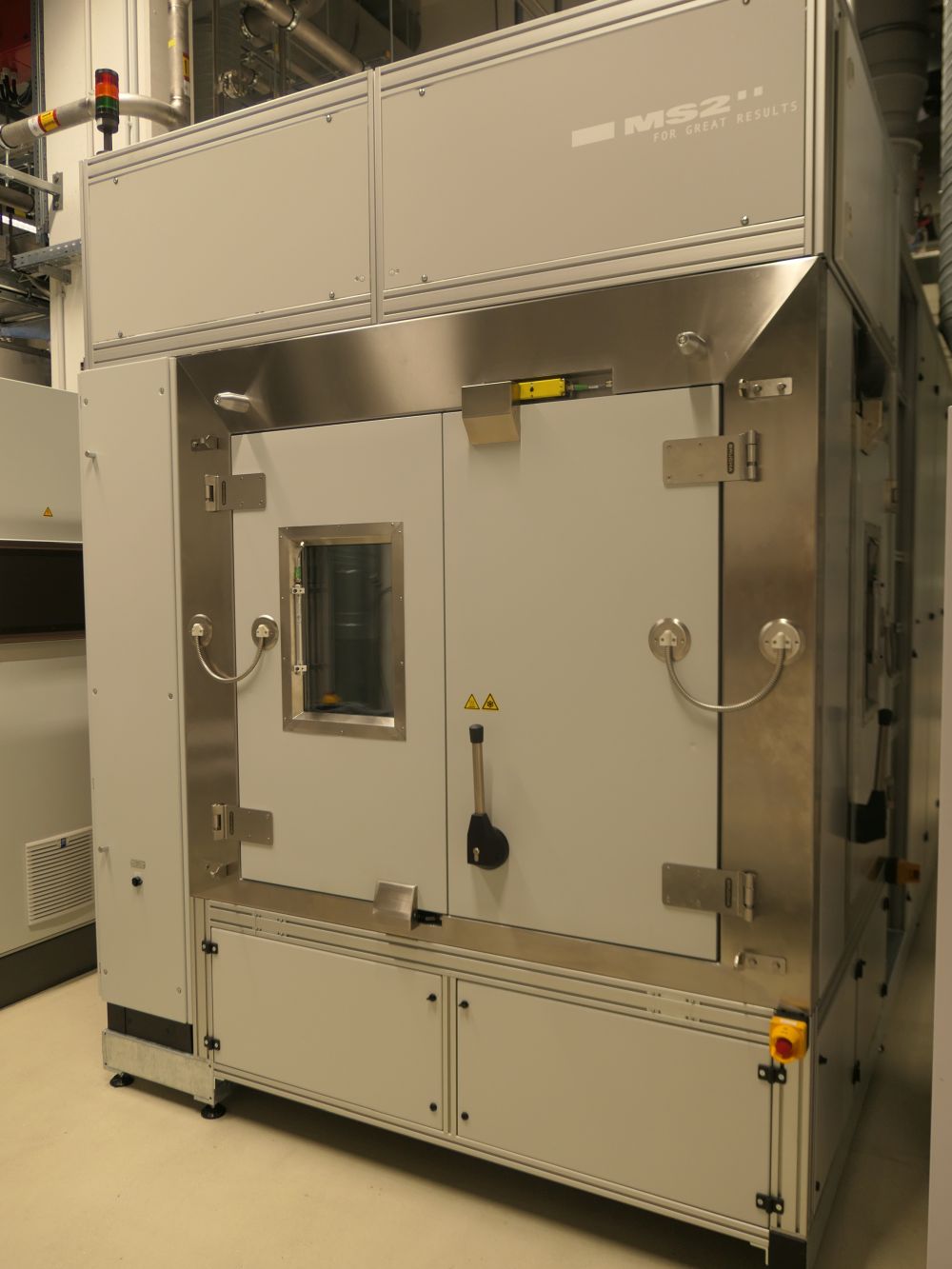High-performance test environments are needed to support the development of powerful, series-ready, high-quality fuel cell stacks. FullStackTS therefore aimed to set up and validate a test environment and develop a non-discriminatory range of tests for the fuel cell industry. At the end of the project, a test rig from MS2 Engineering for fuel cell stacks up to 200 kW with specialised measurement technology from SMART Testsolutions is available at Fraunhofer ISE for contract and collaborative research.
Development of a Full-Stack Fuel Cell Test Rig for Heavy-Duty and Aviation Applications
FullStackTS
Initial Situation
In future, fuel cells will continue to enable fast, reliable and economical passenger and freight transport, but will also make it environmentally friendly and sustainable. However, the requirements in terms of service life, efficiency and power density are high, and at the same time, the various applications require different designs and operating characteristics.
Furthermore, new applications, e.g. for use in aircraft, also place new demands on test rigs, such as higher operating temperatures or different gas compositions.
The range of ambient temperatures at which fuel cells must be operated and tested is also expanding significantly. These changes have an impact on the requirements for test rigs.
Objective
The objective of FullStackTS was to develop a test environment for fuel cell stacks that meets current requirements. In a survey of companies involved in fuel cell development, the requirements for stack testing from various applications were first collected and converted into a test rig specification. Such a test rig was then implemented and is now available for contract and collaborative research at Fraunhofer ISE.
Approach
The survey revealed requirements relating to an extended power range up to 200 kW (for trucks, aircraft, ships, trains, etc.), an operating range up to 120 °C (especially for aviation), anode recirculation (to reduce hydrogen costs) combined with impedance spectroscopy for detailed characterisation. The project partners MS2 and SMART used this information to develop a validated concept for full-stack test rigs and can now offer such test rigs to industry for delivery. With this project, Fraunhofer ISE expanded its R&D offering in the field of fuel cells.
Result
A 200 kWel test rig from MS2 was implemented at Fraunhofer ISE in Freiburg as a concrete implementation of the concept for full stack test rigs. For the scientific investigation of fuel cell stacks, SMART Testsolutions developed and integrated an impedance measurement system capable of measuring 59 channels simultaneously. The modules are designed for a wide temperature range so that they can be positioned close to the stack in the temperature chamber, thereby minimising interference from long cable runs. The project was completed with the successful commissioning of the test rig and measurement technology operating a fuel cell stack. Detailed performance data for the test rig can be found here.
Funding
The “FUllStackTS” project was funded by the Ministry of the Environment of the State of Baden-Württemberg as part of the Hydrogen Future Programme (ZPH2).

nicht entfernen!!
